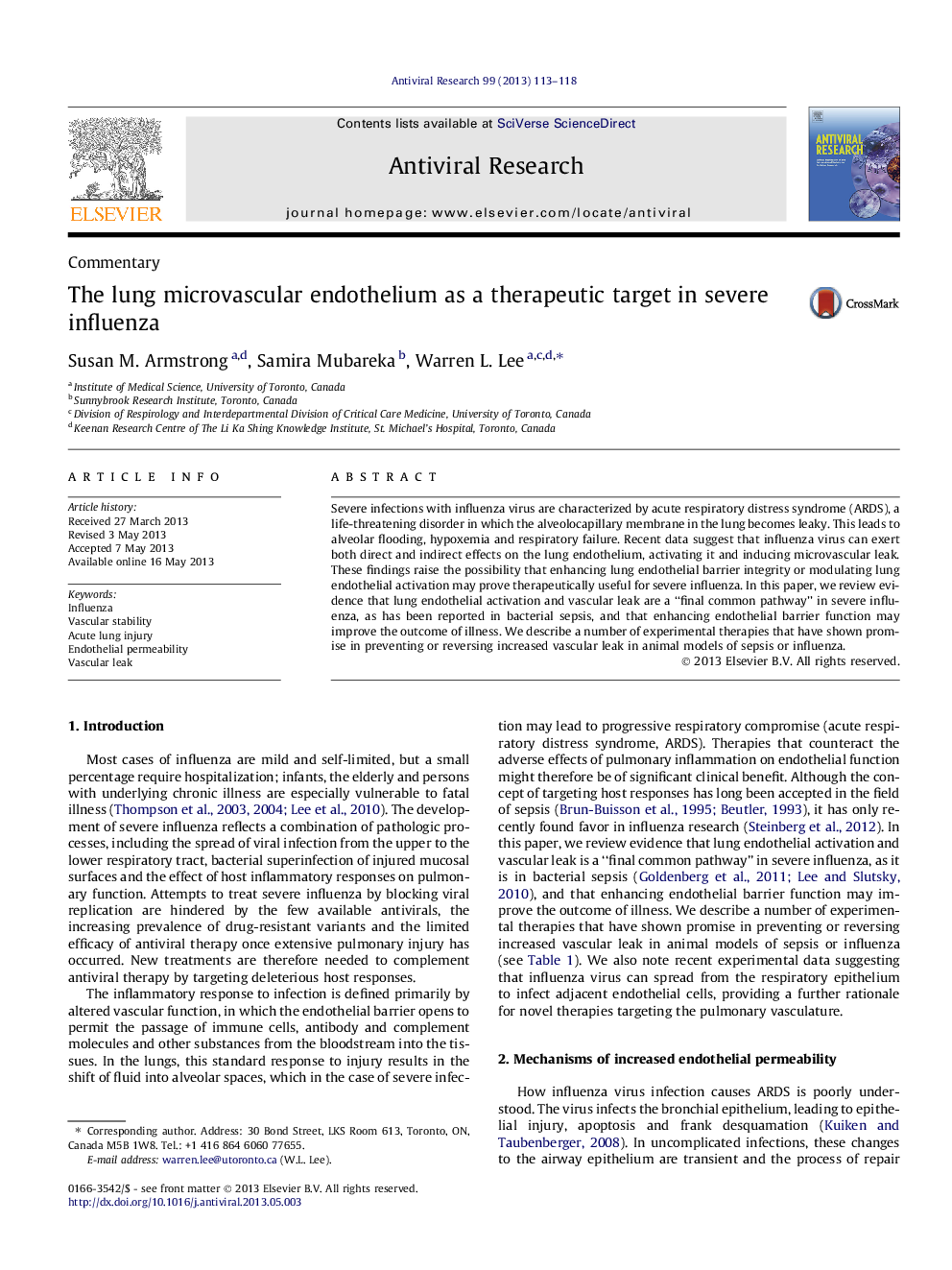| Article ID | Journal | Published Year | Pages | File Type |
|---|---|---|---|---|
| 2510129 | Antiviral Research | 2013 | 6 Pages |
•Severe influenza is characterized by acute lung injury.•Influenza virus can induce pulmonary endothelial leak via cytopathic and paracrine effects.•Drugs that enhance endothelial barrier integrity may decrease mortality from influenza.
Severe infections with influenza virus are characterized by acute respiratory distress syndrome (ARDS), a life-threatening disorder in which the alveolocapillary membrane in the lung becomes leaky. This leads to alveolar flooding, hypoxemia and respiratory failure. Recent data suggest that influenza virus can exert both direct and indirect effects on the lung endothelium, activating it and inducing microvascular leak. These findings raise the possibility that enhancing lung endothelial barrier integrity or modulating lung endothelial activation may prove therapeutically useful for severe influenza. In this paper, we review evidence that lung endothelial activation and vascular leak are a “final common pathway” in severe influenza, as has been reported in bacterial sepsis, and that enhancing endothelial barrier function may improve the outcome of illness. We describe a number of experimental therapies that have shown promise in preventing or reversing increased vascular leak in animal models of sepsis or influenza.
